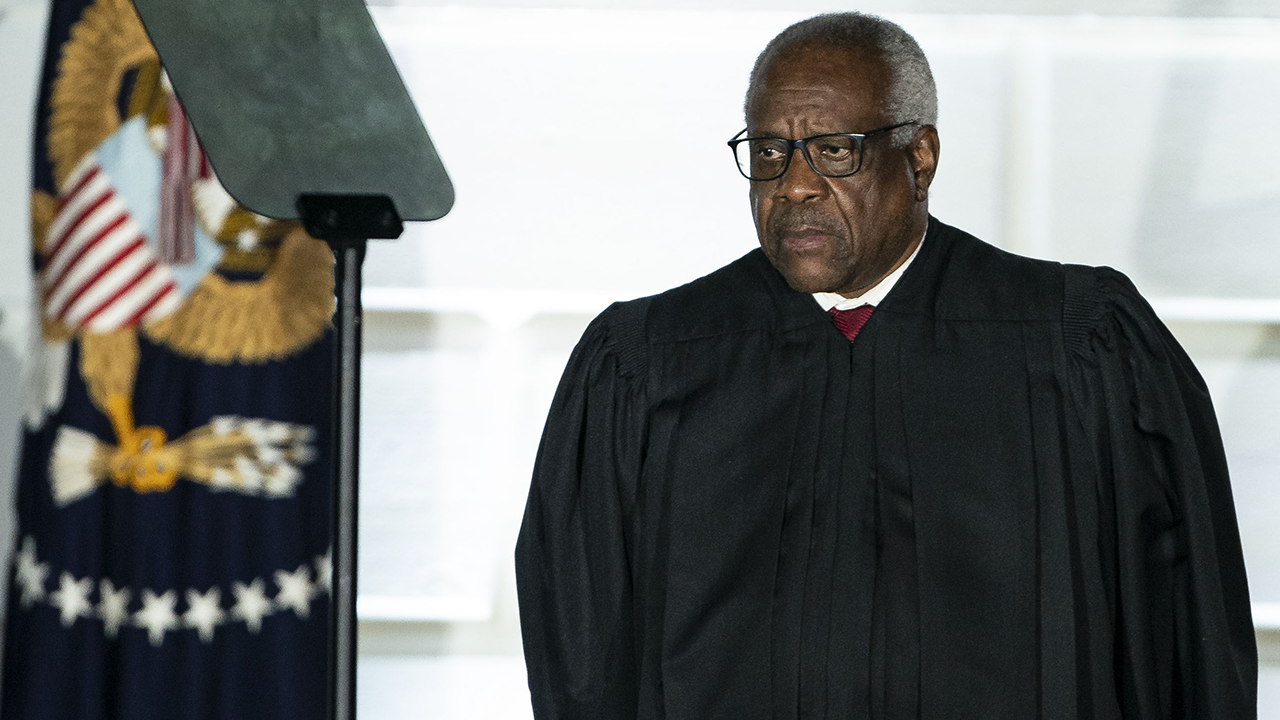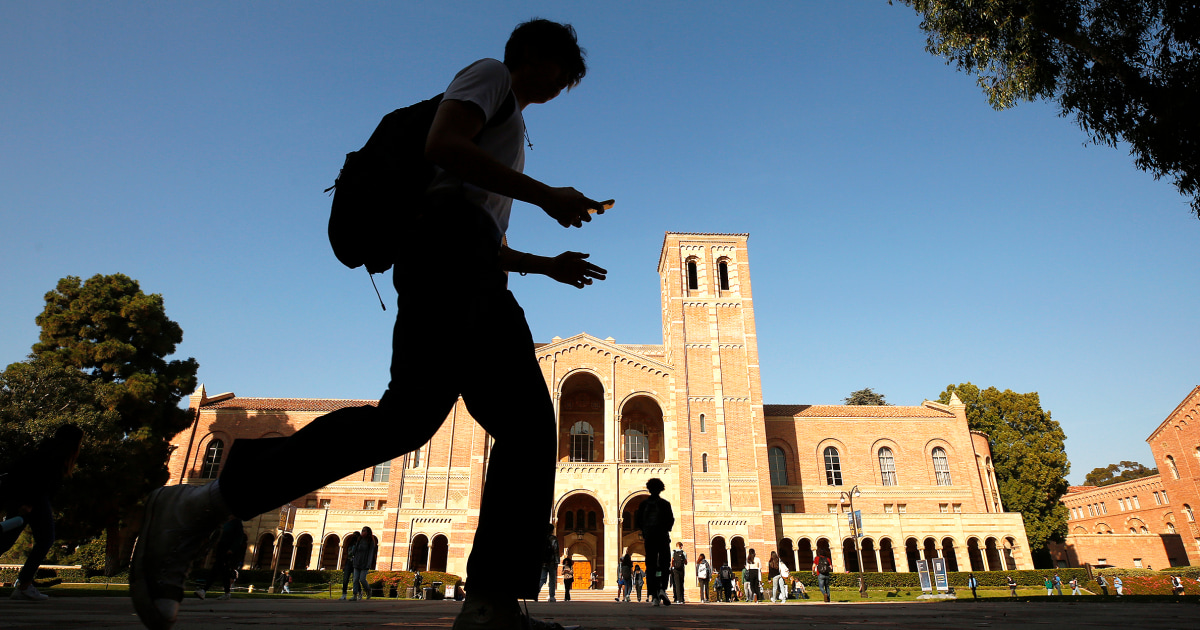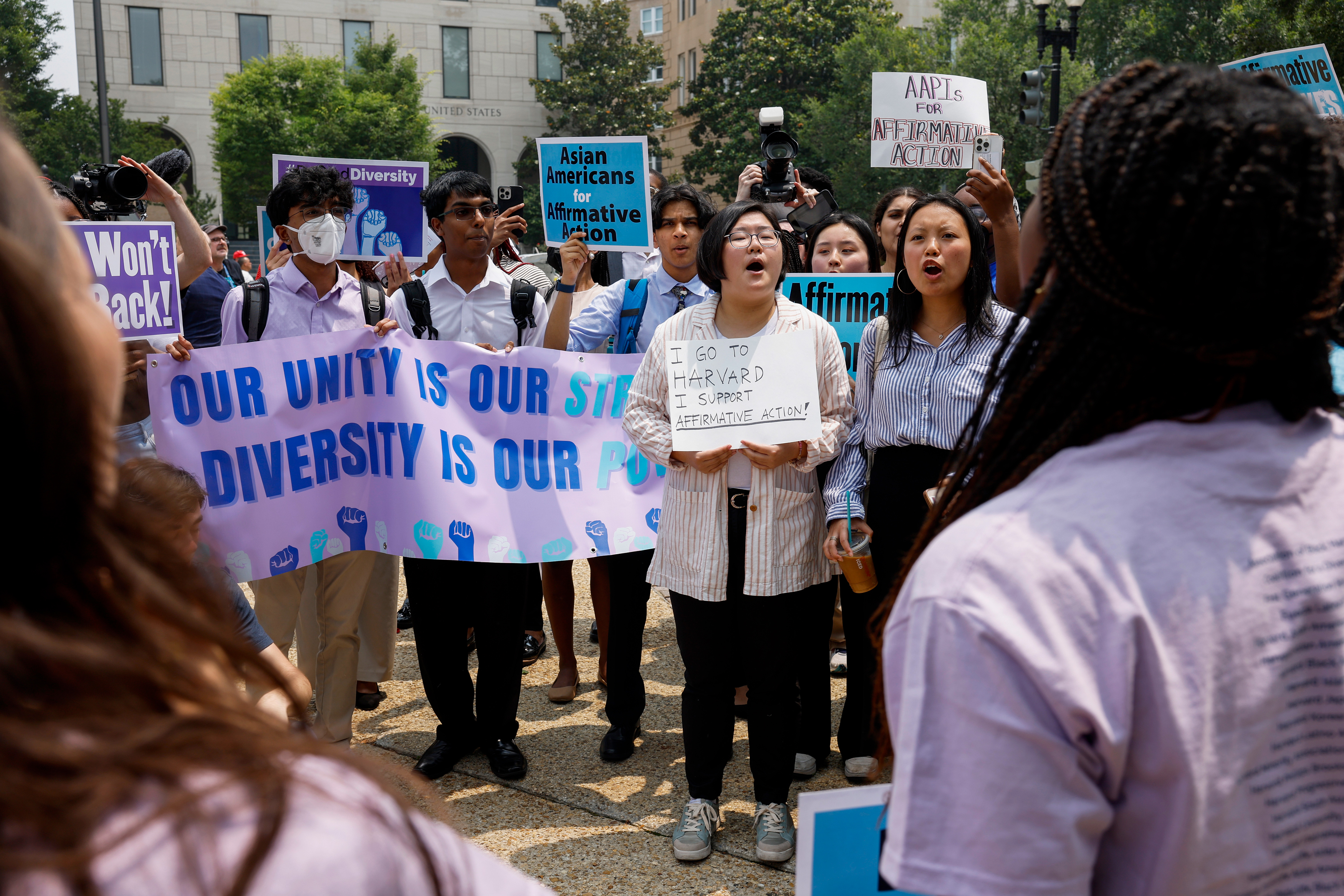Affirmative action policies at college campuses across the United States were effectively banned this week after a U.S. Supreme Court ruling that put an end to years of precedent.
The policy, which had aimed to help increase minority college admissions, was prohibited this week after SCOTUS was asked to consider whether colleges should no longer be able to use race as a consideration when admitting students.
In its wake, critics of the Supreme Court‘s decision pointed out how one of its justices was said to have benefited directly from the introduction of affirmative action programs when he was studying.
Drew Angerer/Getty Images
The Claim
Multiple tweets posted between June 29 and June 30, 2023, claimed that Justice Clarence Thomas benefited from an affirmative action program when he studied at Yale in the early 1970s.
A tweet by Representative Ritchie Torres, a New York Democrat, on June 29, 2023, viewed 116,800 times, said: “Imagine dismantling a program that gave you the opportunity to be a student at Yale Law School and then a Justice on the US Supreme Court.
“The mind of Clarence Thomas: the American Dream for me but not for thee.”
A tweet by political activist Andrew Wortman, posted on June 30, 2023, viewed 137,600 times, said: “In 1971, Clarence Thomas was admitted to Yale’s Law School as part of the affirmative action practice, through which the school wanted 10% of its incoming class to be students of color. Today, he voted to deny these opportunities to all present and future students of color.”
Another tweet by pastor Bishop Talbert Swan, posted June 29, 2023, viewed 2.5 million times, said: “He was admitted to Harvard Law School in 1971 right after it adopted a ‘race conscious’ admissions policy, but chose to go to Yale at the exact moment it created its first explicit affirmative action program with a goal of 10% minority enrollment.”
The Facts
While Clarence Thomas did not deliver the Supreme Court ruling this week, he did write a 58-page concurring opinion, saying the foundational policies of affirmative action “fly in the face of our colorblind Constitution and our Nation’s equality ideal.
“In short, they are plainly—and boldly—unconstitutional.”
In previous Supreme Court opinions on college applications and constitutional rights, Thomas has said that affirmative action has “always been accompanied by straight-faced representations that discrimination helped minorities.”
“Slaveholders argued that slavery was a ‘positive good’ that civilized blacks and elevated them in every dimension of life,” he added. “Segregationists likewise defended segregation on the ground that it provided more leadership opportunities for blacks.”
The notion that Thomas stood to benefit from the same programs could be seen as hypocrisy, a criticism that has been leveled at him before by none other than Rosa Parks, saying in 1996 (as reported by The New Yorker) that Thomas “had all the advantages of affirmative action and went against it.”
The decision this week by the Supreme Court has awakened that echo, with MSNBC host Chris Hayes describing Thomas as having turned around to “pull the ladder up behind him.”
Several reports from Yale officials and representatives confirmed that the university followed an affirmative action policy at the time Thomas attended its law school.
A 1991 New York Times article about Thomas reported how Yale University officials said Thomas was admitted to its law school “under an explicit affirmative action plan with the goal of having blacks and other minority members make up about 10 percent of the entering class.”
Professor Abraham S. Goldstein, dean of the law school, from 1970 to 1975, was quoted by the Times as saying: “We did adopt an affirmative action program and it was pretty clearly stated.”
A 1994 Yale Alumni Magazine article underlines this, stating: “Like most American universities, Yale in the 1960s and ’70s embarked on an aggressive policy of affirmative action in admitting and hiring minorities and women.”
Thomas has strongly supported the notion that his admission was under an affirmative action plan.
During a 1980 Washington Post interview, Thomas said: “You had to prove yourself every day because the presumption was that you were dumb and didn’t deserve to be there on merit.”
“Every time you walked into a law class at Yale it was like having a monkey jump down on your back from the Gothic arches….The professors and the students resented your very presence.”
His feelings were more explicit in the 2007 memoir My Grandfather’s Son, in which Thomas wrote: “As much as it stung to be told that I’d done well in the seminary despite my race, it was far worse to feel that I was now at Yale because of it.”
Although there isn’t documentary evidence (such as admission papers or other paperwork that would settle the question entirely), it appears clear from the testimony of Yale officials and Thomas that his admission to the Yale School of Law was made at the time of affirmative action policies and was almost certainly was influenced by it.
The Supreme Court’s other Black justice, Ketanji Brown Jackson, sparred with Thomas this week over the decision to overturn affirmative action in U.S. colleges.
Responding to Thomas’ 58-page concurring opinion on the ruling, Jackson said: “The takeaway is that those who demand that no one think about race [a classic pink-elephant paradox] refuse to see, much less solve for, the elephant in the room—the race-linked disparities that continue to impede achievement of our great Nation’s full potential.”
Newsweek has reached out to Yale and a representative for Clarence Thomas via email for comment.
The Ruling

True.
Thomas has repeatedly claimed that affirmative action initiatives or similar policies were responsible for his admission and his sense of discrimination therein. This appears to have been a formative part of Thomas’ opposition to the social policy. Testimony from others, including Yale officials, supports this claim.
As noted by Yale, the university embarked on an “aggressive” campaign during the 1960s and 1970s, when Thomas applied. Even without written documentary evidence that separately confirms the decision-making behind Thomas’ admission, we can be confident that affirmative action was in place and is likely to have had an influence on his placement.
FACT CHECK BY Newsweek’s Fact Check team















